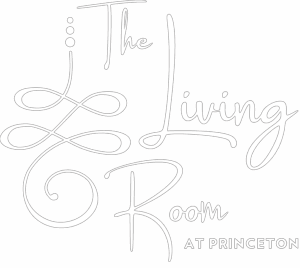Attention deficit hyperactivity disorder (ADHD) is a mental health condition. People usually exhibit symptoms and receive a diagnosis of ADHD during childhood.
The symptoms of ADHD can be very disruptive to a person’s functioning. However, medication and other treatments can help people manage this condition.
Attention deficit hyperactivity disorder is relatively common. About 11 million people in the United States have an ADHD diagnosis.[1] Some people living with ADHD also struggle with substance abuse or addiction.
This article will explore the connections between ADHD and substance abuse and how these co-occurring disorders are treated. You will learn:
- The symptoms of ADHD
- Why there is a connection between ADHD and substance abuse
- What to expect in ADHD treatment programs
- Where to find effective treatment options and recovery support
Contact the specialists at The Living Room to explore our substance use disorder treatment programs. We offer programs for adolescents and adults with ADHD and substance use disorder. Reach out to our intake team to learn more or schedule an intake assessment.
What is ADHD?
Attention deficit hyperactivity disorder (ADHD) is a mental health condition that causes disruptive symptoms, including hyperactivity and impulsivity. People who are diagnosed with ADHD may struggle to pay attention for long periods.
People are most likely to receive an ADHD diagnosis during childhood.[2] The average age of diagnosis is seven years old. It is the most common mental health condition among children in the United States. Children with ADHD require comprehensive treatment plans to support learning and development.
People with ADHD may take stimulant medications to manage their symptoms. They may also use practical coping skills and lifestyle changes to reduce symptoms and improve functioning.
What is the Connection Between ADHD and Substance Abuse?
Research shows that people with substance use disorder (SUD) are five to ten times more likely to have ADHD than the general population.[3,4] While there is no clear evidence to show ADHD causes substance abuse, there are several theories about the connection between ADHD and SUD.
One theory is that people with ADHD typically struggle with impulsivity. This lack of impulse control may make them more likely to initiate drug or alcohol use. People with ADHD may continue to use addictive substances despite experiencing harm and may have more trouble preventing relapse.
Another theory is that people with ADHD may be more likely to abuse their prescription medications. Many of the stimulant drugs doctors use to treat ADHD symptoms have the potential for misuse and physical dependence.
Here is an overview of the prescription medications used to treat ADHD.[5]
Stimulants
Several stimulant drugs can treat ADHD symptoms. These drugs include:
- Ritalin
- Adderall
- Vyvanse
Doctors prescribe these and other stimulants to treat ADHD. Medical experts believe that ADHD symptoms occur from a lack of central nervous system (CNS) stimulation. The side effects of stimulant medications can reduce ADHD symptoms.
Non-stimulant drugs
Doctors sometimes prescribe non-stimulant medications for people who struggle with substance use disorder (SUD) and ADHD. These medications include:
- Strattera
- Clonidine
- Guanfacine
People may take these medications along with other prescription drugs to manage their ADHD symptoms. Unlike stimulant drugs, these non-stimulant medications are not controlled substances. They do not have a risk of misuse or addiction.
It is crucial to watch for signs of substance misuse and addiction. People who become addicted to their prescription drugs may require professional treatment and ongoing support to recover.
Anyone can abuse addictive substances. Watch for signs of substance abuse and seek treatment as quickly as possible to reduce the risk of short-term danger and lifelong consequences.
What to Expect in Treatment for ADHD and Substance Abuse
The Living Room at Princeton offers dual diagnosis treatment programs for adolescents and adults living with ADHD and substance use disorder. Our comprehensive programs occur in both inpatient and outpatient settings.
Before beginning treatment, our treatment team will assess your needs. They will use this information to recommend a level of care to help you start long-term recovery. This assessment may include:
- Information about your past and current substance use
- A complete medical and mental health history
- Lab testing
- A physical exam
This information can help your treatment team provide the most personalized treatment possible.
You may begin treatment in a medically-supported detox program. During detox, your team will monitor your withdrawal symptoms and provide treatment as needed. Your detox treatment plan may include:
- Medications to reduce withdrawal symptoms
- Treatment for anxiety disorders or other mental health conditions
- Emotional support, including counseling and group therapy
- Holistic therapies like exercise, nutrition support, and mindfulness
After detox, you will continue treatment in a comprehensive program that includes:
- Behavioral therapies
- Mental health treatment
- Individual, group, and family therapy
- Medications and medical care
- Relapse prevention education
- Coping skills
- Art therapy, yoga, nutrition support, meditation, and other holistic practices to support overall well-being and healing
- Aftercare planning
The treatment of ADHD involves behavior therapy and medications. For those with substance abuse problems, non-stimulants are used instead of stimulants. While non-stimulants do not work as quickly as stimulants, their effects can last up to 24 hours, effectively managing ADHD symptoms.[5]
Find Treatment for ADHD and Substance Abuse in New Jersey
Our teen and adolescent therapists and doctors work closely with families. This ensures young people receive the care they need to thrive throughout detox and recovery. Contact our intake team now to explore our holistic treatment programs or to schedule an intake evaluation.
References:
- National Institute of Health: ADHD Diagnostic Trends: Increased Recognition or Overdiagnosis?
- National Institute of Mental Health: Attention-Deficit/Hyperactivity Disorder (ADHD): What You Need To Know
- National Institute of Health: Does ADHD Predict Substance Use Disorders? A 10-year Follow-up Study of Young Adults With ADHD
- Industrial Psychiatry Journal: Prevalence of adult ADHD in patients with substance use disorder in North East India
- Centers for Disease Control and Prevention (CDC): Treatment of ADHD

